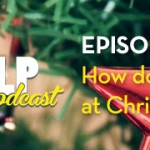New Year 2016
You Can’t Have New Beginnings Without Endings
Each New Year we talk about new beginnings. About how we need to look forward to the year to come, make resolutions and build the future that we want and desire. For many of us this never really happens and each year becomes the same old, same old as years slide seamlessly one year to the next.
I have become more aware of how my clients, and come to that all of us, are forever hampered in our attempts to go forward because we are attached to the past. Unresolved emotional pasts are either holding us back like anchors on a cruise ship or we are left dragging them around like an iron ball on a chain. In either event struggling against an immoveable anchor or dragging an extreme weight is tiring and debilitating leading to fatigue and ultimately depression.
This has a huge physical and emotional impact on our ability to live in the present, enjoy who and where we are, and leads to many physical and psychosomatic conditions. Some estimates suggest that up to 60% of visits to primary care are for emotional not physical problems. Yet these emotional issues are treated with physical medication to deal with the physical symptoms rather than more appropriately making referrals to psychological medicine.
Symptoms such as depression, tiredness, fatigue, M.E. Chronic fatigue, the various forms of myalgia, muscle tensions, back ache, headache, asthma, skin eruptions, insomnia, disorders of the gut…I could go on forever, are either totally, partially, are at last exacerbated by our overloaded emotions and our inability to let go of what was and embrace where we are in the present.
Understanding our before and after
Often the emotional symptoms that I refer to are related to loss, hurt and change. Such events create a before and after. Before the event we had an identity and after the event we have an identity but they are different. Nostalgia is when we keep looking back to the past, and crave for that past to be our current present. This can never happen. It is this deficit between what was and what is, that is the feelings of loss that lead to these depressive symptoms. For many years nostalgia was seen as an emotional disorder.
Returning to the pain
Nostalgia was coined by Swiss physician Johannes Hoffer in 1688, and for years after that, nostalgia was considered a disorder, according to The New York Times. Hoffer called nostalgia a “neurological disease of essentially demonic cause,” the Times reported. The term comes from the Greek words for “returning” (nostos) and “pain” (algos).
You can see from the above that our looking back is often painful. Either we are reliving painful experiences or feeling the hurtful loss of good experiences. Either which way looking back often leads to feelings of pain in the present hence the tendency for it to create depression.
When we lose people, become divorced, retire or are made redundant, or when we are subject to unwanted change, as in when the workplace undergoes re-organisation, or perhaps we have been the subject of an accident or event that has been life threatening, each can lad to nostalgia “returning to the pain”.
These days we view nostalgia as a warm feeling for a safer and happier past, the good times that were. Yet even in this there can be the seeds of depression. As societies and organisation’s change, often a revolution rather than an evolution, we hanker for the old order that was, to our eyes, so much better than what we have now.
Creating endings
What I am saying is that we tend to fail in our attempts at creating our New Year resolutions because we are held back by our unresolved past. The steps one, two and three, in the Live in the Present book are designed to deal with this and my book, ‘What’s That In Your Attic’ is about cleaning all the rubbish out of your head. On the basis that you can only create effective new beginnings once you have created endings, perhaps you might consider putting your attention to letting go of what was before creating what will be. If you are struggling with unresolved past issues or suffering from the types of psychosomatic symptoms that I have described above you might benefit for some psychotherapy.
And for those of you who are now reaching for your keyboard to tell me that your symptoms are not psychosomatic and that they are a diagnosed disease, condition or syndrome with a name, I am not saying that all illness is psychosomatic, but that the symptoms of your physical illness will be exacerbated by your emotional wellbeing and health or by the lack of it. In letting go of the past you are assisting the natural healing of your body to do its job.
Be happy, let go and move forward.
Sean x




Trackbacks & Pingbacks
[…] Sean has written a few words about this week’s topic […]
Leave a Reply
Want to join the discussion?Feel free to contribute!